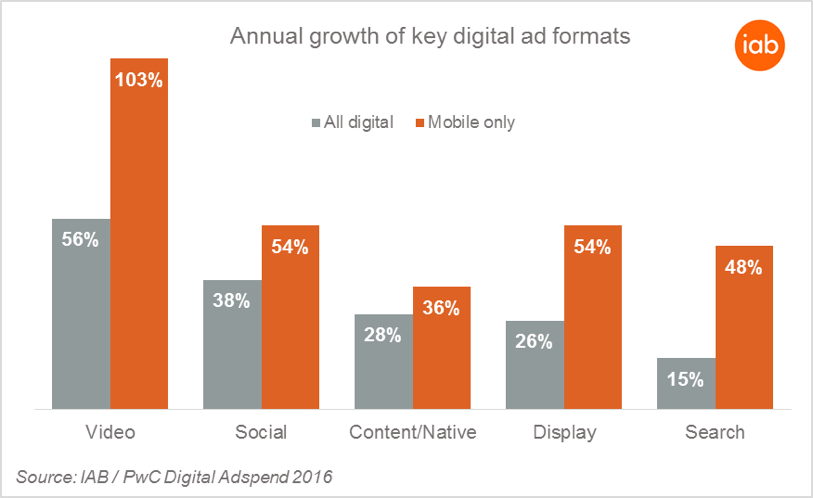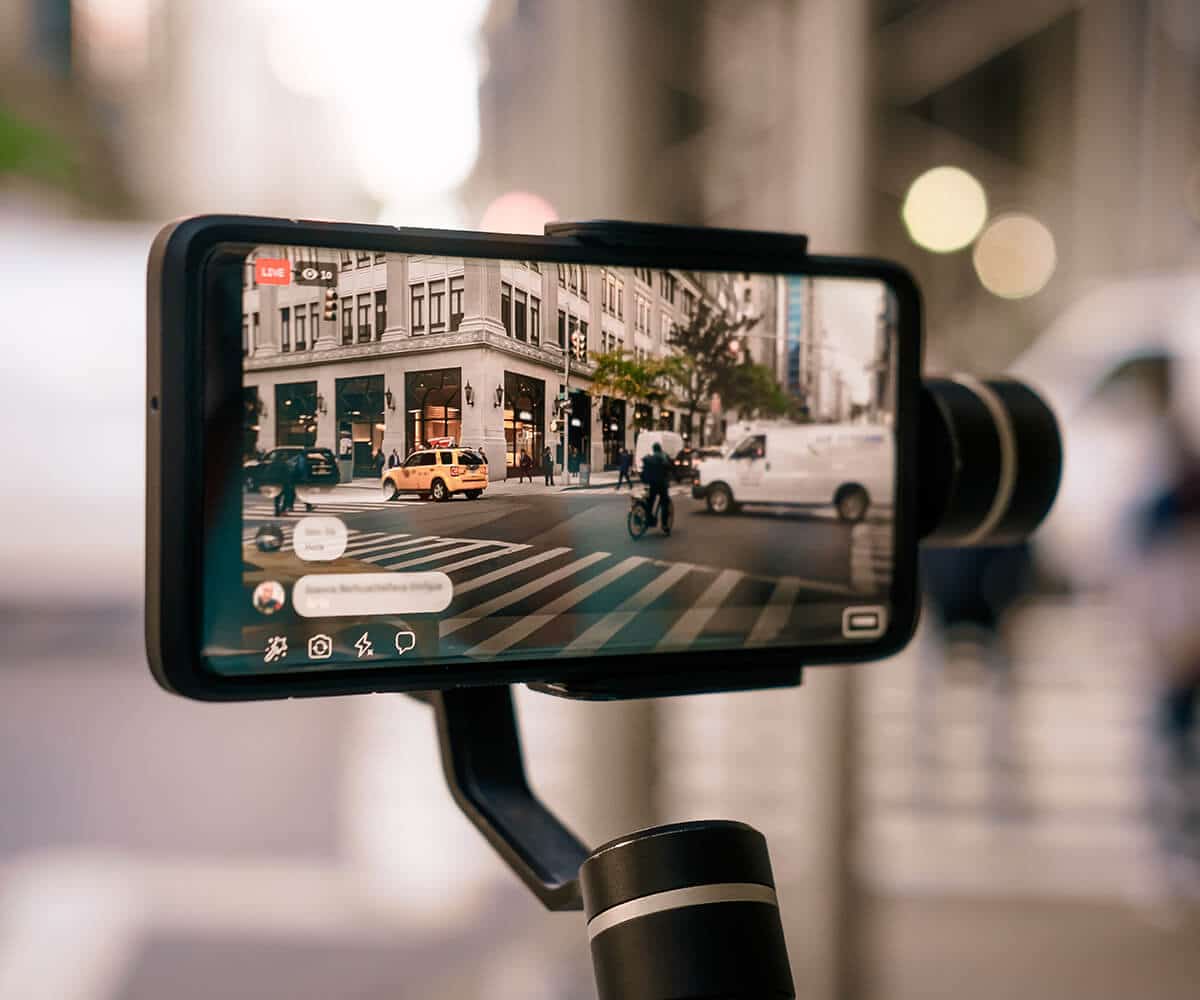
All of us working in social media and digital have noticed the huge increase in social video and it seems the advertising budgets have shifted towards video more than anything else. The increasing amount of short video clips, TV programmes and films people watch on mobiles helped UK internet advertising grow at its fastest rate for nine years, crossing the £10 billion threshold for the first time.
The amount UK companies spent on internet advertising rose 17.3pc¹ year-on-year to £10.3bn in 2016, according to the Internet Advertising Bureau UK / PwC Digital Adspend report. Mobile video ads were the fastest-growing format, doubling in size (103pc) to £693 million. Consequently, they alone accounted for 29pc of the total growth in online ad budgets. Yes you read that correctly 29% – that means that video is almost a third of all online advertising spend and who is surprised?
I was advising a client yesterday to use targeted video advertising as video views can cost as little as 1p per view. However, marketers need to be careful chasing the video views dream because Facebook counts a video view as anything more than 3 secs. If you are smart you can adjust the settings to more than 10 secs but still it’s nowhere near a YouTube view which is 30 secs.
Alongside video and mobile, social media advertising continues to grow at a pace, with budgets rising a whopping 38% to £1.73bn. People’s tendency today to use their mobiles for social media means that 79p in every £1 spent on social media ads goes on mobile, while just 21p goes on computer or tablet ads.
The rise in mobile video ad budgets reflects online YouGov data² showing that in the last six months, 54pc of British smartphone users watched video clips on their phone, with two-in-five of these saying they do more of this than a year ago. I certainly watch more video today than I did six months ago, my agency has produced about 50 videos in the last six months because clients want social video – they want smart entertaining clips that people watch.
A significant number have also watched TV programmes (17pc) and films (11pc) on their smartphones – I think most of this could be attributed to Kodi or BBC iPlayer. This behaviour is much more prevalent among 18-24 year olds, with 75pc watching short clips, 44pc watching TV and 33pc watching films on mobiles. Six-in-10 people who watched short clips, TV or film on their phone did so whilst ‘out and about.’
UKOM, the official body that measures online behaviour, shows that nearly half (48pc) of adult’s internet time is now spent on smartphones³, compared to 38pc on desktops/laptops and 14pc on tablets. So the new generation are fitter, drink and smoke less than us but they are addicted to their smartphones even more than we are.
These shocking statistics have seen mobile ad budgets increase 51% to £3.87bn and as such mobile now accounts for 38p in every £1 spent on internet ads. I would argue it should probably be higher than that already as the data that I am reading ever day for my clients usually shows between 60-80% of traffic coming from mobile.




